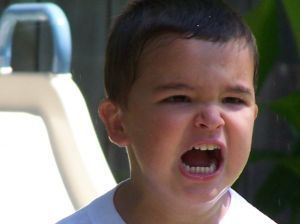COMMENTARY | Parenting is the toughest job we will ever have and probably the only one that comes without training. Most of us enter parenthood totally unprepared for the challenges that lie ahead. We learn as we go, and look for guidance in the hope that we are doing the right things for our children. Sometimes, however, that guidance offers conflicting advice.
Fortunately, one such conflict – to spank or not to spank – is addressed by research recently published in the Canadian Medical Association Journal. In an analysis of 80 academic studies on spanking conducted over a 20-year period, University of Manitoba clinical child psychologist Joan Durrant and social worker Ron Ensom of Ottawa’s Children’s Hospital of Eastern Ontario, cite research that shows physical punishment makes children more aggressive and antisocial, and can even cause cognitive impairment and developmental difficulties.
“The findings have been very consistent over the past 20 years,” said Durrant in a Boston Globe article . “Physical punishment predicts only negative long-term outcomes.”
The Controversy
According to the authors of the study, medical findings regarding the negative impact of spanking have been largely overshadowed by the concerns that parents should have the right to discipline their children as they see fit. And while spanking has certainly diminished over the past 20 years, many still continue to mete out this punishment.
Given the mounting evidence that in addition to aggression in both childhood and adulthood, frequent spanking increases the likelihood of depression, anxiety, cheating and criminal behaviors, Durrant said in a Reuters interview, “We really are past the point of calling this a controversy. That’s a word that’s used and I don’t know why, because in the research there really is no controversy.”
“If we had this level of consistency of findings in any other area of health, we would be acting on it. We’d be pulling out all the stops to work on the issue,” added Durrant.
Long-Lasting Consequences
To counter the argument that spanking stops unruly behavior, researchers acknowledge that while it might work in the short-term, the long-term effects of frequent spankings can be severe.
Murray Straus, PhD, and co-director of the University of New Hampshire’s Family Research Laboratory, has been studying spanking for more than 20 years. Dr. Straus’ research suggests that frequent physical punishment results in lower IQ levels. His research reveals that the IQs of children ages 2 to 4 who were not spanked were 5 points higher four years into the study than the IQs of those who were spanked. The IQs of children ages 5 to 9-years-old who were not spanked were 2.8 points higher four years later than the IQs of children the same age who were spanked.
Spanking is a traumatic experience that can cause small losses in the brain’s gray matter, causing behavioral changes,” Straus told the Boston Globe.
“How often parents spanked made a difference. The more spankings the slower the development of the child’s mental ability. But even small amounts of spanking made a difference,” Straus says.
“Of course, some kids aren’t harmed at all by spanking, just like some heavy smokers suffer no harm from cigarettes,” adds Straus. But they are the lucky ones as opposed to the unlucky ones who suffer harmful side effects.”
Gentler Discipline Options That Work
The American Academy of Pediatrics (AAP) “strongly opposes striking a child for any reason.” Clearly, we as parents must teach our children to behave. Rather than physically venting our frustration with a child who is misbehaving, the AAP suggests time-outs, lost privileges and other kinder, gentler ways to discipline your child.
Setting an Example
Spanking teaches children it’s OK to cause other people pain. It sends the message that aggressive behavior is the solution to the problem at hand. More to the point, physical punishment instills pain not understanding, and a child is not likely to see the difference between getting spanked by a parent and hitting a sibling or friend when he doesn’t get what he wants.
If we are to fulfill our responsibility to our children to teach them right from wrong and respect for others, we must begin by practicing what we preach. Children are keen observers of the family dynamic and emulate the behavior of the adults around them.
Our children need our respect and love. Our children need to feel safe and secure. Our children need a firm hand, not a violent one.
Sources:
Alice Park, “The Long-Term Effects of Spanking,” time.com
“The Trouble with Spanking,” The Vancouver Sun
